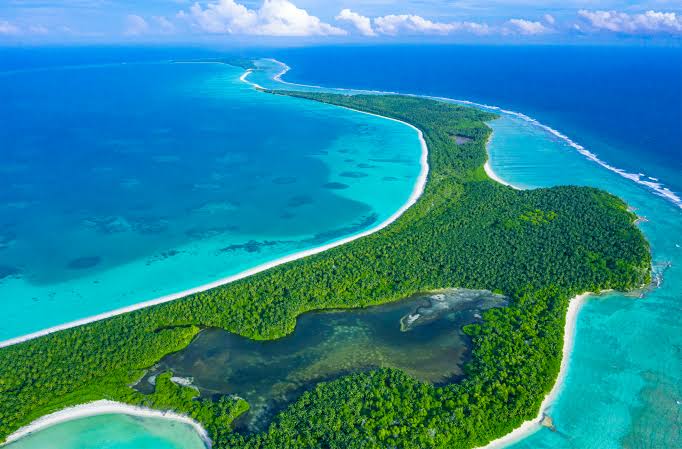India reiterated its unwavering support for Mauritius in the long-standing sovereignty dispute with the United Kingdom over the Chagos archipelago in the Indian Ocean. This reaffirmation was made by External Affairs Minister S. Jaishankar during his two-day visit to Mauritius, where he engaged in extensive discussions with the nation’s leadership to strengthen bilateral relations.
In a statement, Jaishankar emphasized, “I would like to again assure you today that on the issue of Chagos, India will continue its consistent support to Mauritius in line with its principal stand on decolonisation and support for the sovereignty and territorial integrity of nations.” His visit underscores India’s firm stance on the matter, aligning with its broader commitment to decolonization principles and international law.
Strategic Significance of the Chagos Islands
The Chagos Islands, which include the strategically vital US airbase Diego Garcia, have been a point of contention for decades. The archipelago has been administered as the British Indian Ocean Territory, a status fiercely contested by Mauritius. The islands’ strategic importance is underscored by Diego Garcia’s role as a pivotal military base for the United States, particularly during the conflicts in Iraq and Afghanistan.
Mauritius has consistently disputed British control and demanded the right to sovereignty over the islands. The origins of this dispute date back to the colonial era, specifically 1814, when Britain claimed the Chagos archipelago along with Mauritius. However, the dispute intensified significantly in the latter half of the 20th century.
Historical Context and Legal Battles
The modern phase of the Chagos dispute began in 1966 when Britain leased Diego Garcia to the United States for use as a military base. This decision led to the forced eviction of approximately 2,000 Chagossians, who were relocated to Mauritius and the Seychelles. These inhabitants, primarily descendants of African slaves brought to the islands in the 18th century, have since been embroiled in a prolonged legal battle for the right to return to their homeland.
Despite multiple British court rulings in favor of the Chagossians, the highest court in the UK overturned these decisions in 2008, citing security concerns tied to the US military presence on Diego Garcia. This base remains a critical asset for American military operations, complicating the legal and diplomatic landscape of the dispute.
AML Certification in Mauritius
Mauritius, which achieved independence from Britain in 1968, has persistently maintained its claim over the Chagos Islands. The separation of Chagos from Mauritius was denounced by former Mauritian President Anerood Jugnauth, who argued that it contravened United Nations resolutions and constituted a grave injustice to the nation.
International Court of Justice Ruling
The dispute reached a significant turning point in 2019 when the International Court of Justice (ICJ) ruled against the UK’s claim to govern the Chagos Islands. The ICJ called on the British government to withdraw from the archipelago, marking a landmark decision in the protracted legal and diplomatic battle.
India’s Strategic Triumph in Silver Trade Dominance War with China
The ICJ’s advisory opinion reinforced the view that the decolonization process for Mauritius was incomplete without the return of the Chagos Islands. This ruling was seen as a significant victory for Mauritius and a vindication of its long-held stance on the issue. However, the UK has not complied with the ICJ’s ruling, citing the strategic importance of Diego Garcia.
India to Conduct Malabar Exercise with QUAD to Confront China’s Aggression
India’s Role and Regional Implications
India’s support for Mauritius in the Chagos dispute is rooted in its broader geopolitical and strategic interests in the Indian Ocean region. By backing Mauritius, India seeks to reinforce its commitment to decolonization and uphold international legal norms. This stance also aligns with India’s vision of a multipolar world where smaller nations’ sovereignty and territorial integrity are respected.
Jaishankar’s visit and reaffirmation of support are expected to bolster India-Mauritius relations and further enhance India’s influence in the Indian Ocean region. As global power dynamics evolve, India’s proactive engagement in regional disputes and support for allies like Mauritius underline its strategic priorities and diplomatic principles.
The Chagos dispute remains a complex and multifaceted issue involving historical grievances, strategic interests, and international law. India’s consistent support for Mauritius underscores its commitment to decolonization and respect for sovereignty. As the international community continues to monitor developments in this protracted dispute, the stance of influential nations like India will play a crucial role in shaping the future of the Chagos Islands and the broader geopolitical landscape of the Indian Ocean.


